By Mai Ishikawa Sutton and Nicolás Pace
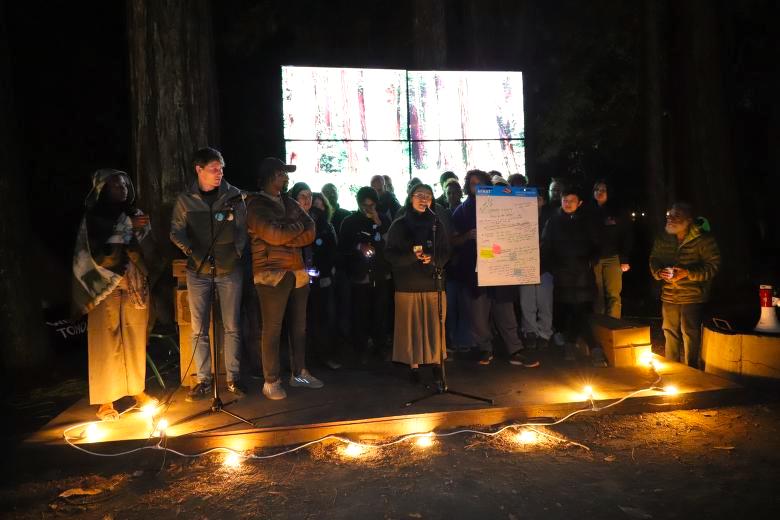
The design and development of most network technologies remains in the hands of the few. In light of this, the right to privacy and freedom of expression can end up being a privilege controlled by large corporations that are incentivized to profit from our digital connections. Meanwhile, a homogenized internet makes it difficult for individuals and communities to express multiple identities and have the agency to determine their own networks.
Thankfully, around us you can always find people who in their day-by-day work contribute to developing a fairer reality for everyone – one that defends environmental justice and social inclusion, innovation at the service of life, and a world where all worlds fit, both online and offline.
The DWeb Fellowship invites people from around the world to come to California for DWeb Camp. This year, we had 36 Fellows – they traveled from India, Cambodia, Argentina, Cuba, Kenya, Malawi, Germany, Italy, and from many other places overseas, as well as from across North America and the Bay Area. We selected these exceptional individuals because they invite and challenge us to transform our reality and co-create a vision of a better Web.
And in practice, they are the embodiment of the DWeb Principles (https://getdweb.net/principles/). The DWeb Principles reflect what we aim for as we work to build a decentralized web – the distributed protocols, applications, organizations, culture, and everything in between that make it possible to manifest the webs of digital connection that make us better humans for each other and all other life on this planet. Our Fellows work to realize the promise of a decentralized Web – where power is decentralized and control over digital infrastructure is meaningfully distributed. They use and build interoperable, free and open source tools to uplift communities in some of the most challenging contexts. They come from open and transparent organizations that govern their projects in a way that actively pursues equity, mutual trust, and respect. And they demonstrate how network technologies can bring about justice and advance individual and collective agency by prioritizing relationships and building communities of care.
In honor of the summer solstice, the longest day of the year, we asked the Fellows to participate in our opening ceremony. One of our Fellows, Kanyon “Coyote Woman” Sayers-Roods, led us in a song in the language of the Costanoan Ohlone-Mutsun and Chumash people, those native to the area that is now known as Northern California. As the Fellows each lit a candle around us, we recognized them as leaders lighting the way towards a better, truly decentralized web – one that distributes power and ensures that individuals and communities share the privileges and responsibilities to steward the network technologies they rely on.
We were lucky to have them at Camp this year to share their perspectives, wisdom, and stories with us. As organizers of DWeb Camp, we continue to strive to find ways to amplify their voices in this movement and support their work.
2023 DWeb Fellows

Akhilesh Thite (https://akhilesh.art/) is an Indian tech enthusiast with a passion for decentralization. He is the founder of P2P Labs (https://p2plabs.xyz/), an open-source organization with a focus on building curated web3 infrastructure tools for the decentralized internet, leveraging the IPFS protocol. He is currently developing a minimal p2p web browser named Peersky. Akhilesh is often found participating in Hackathons or working on devgrants, he has won eight Web3 hackathons. His goal is to develop decentralized tools that significantly contribute to the betterment of humanity.

Amber Gallant is a Masters’ student at the iSchool at the University of British Columbia. She is a librarian, writer, and open-source enthusiast with professional interests in data ethics and digital commoning spaces. She currently acts as the project manager of the Guardians of the Record Lab (https://blockchain.ubc.ca/research/guardians-record-lab), a group that conducts research into maintaining and protecting the integrity of records in human rights contexts and investigates the use of decentralized archival technologies for this purpose. She is also completing an original research project through Blockchain@UBC, where she is examining humanitarian blockchain projects and the data rights of users in conflict contexts through the lens of data justice.
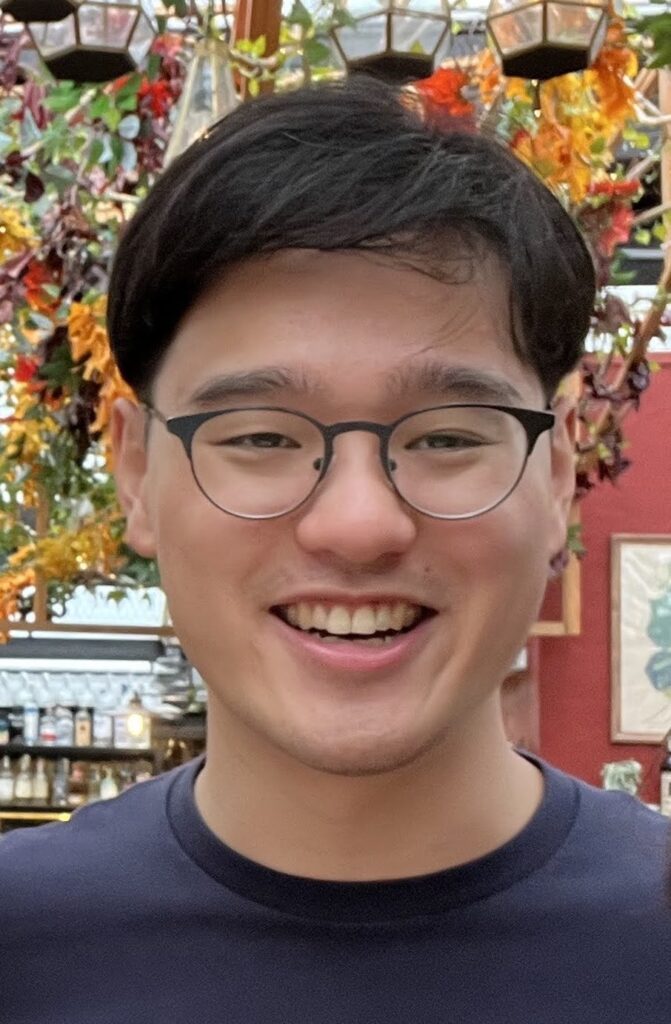
Andrew Chou (https://andrew.nonetoohappy.buzz) is a technologist based in NYC that tends to explore the various corners of the internet. He currently works as a developer with Digital Democracy (http://digital-democracyr.org) and Manyverse (https://manyver.se), building offline-first applications that are designed on the basis of decentralization and autonomy.
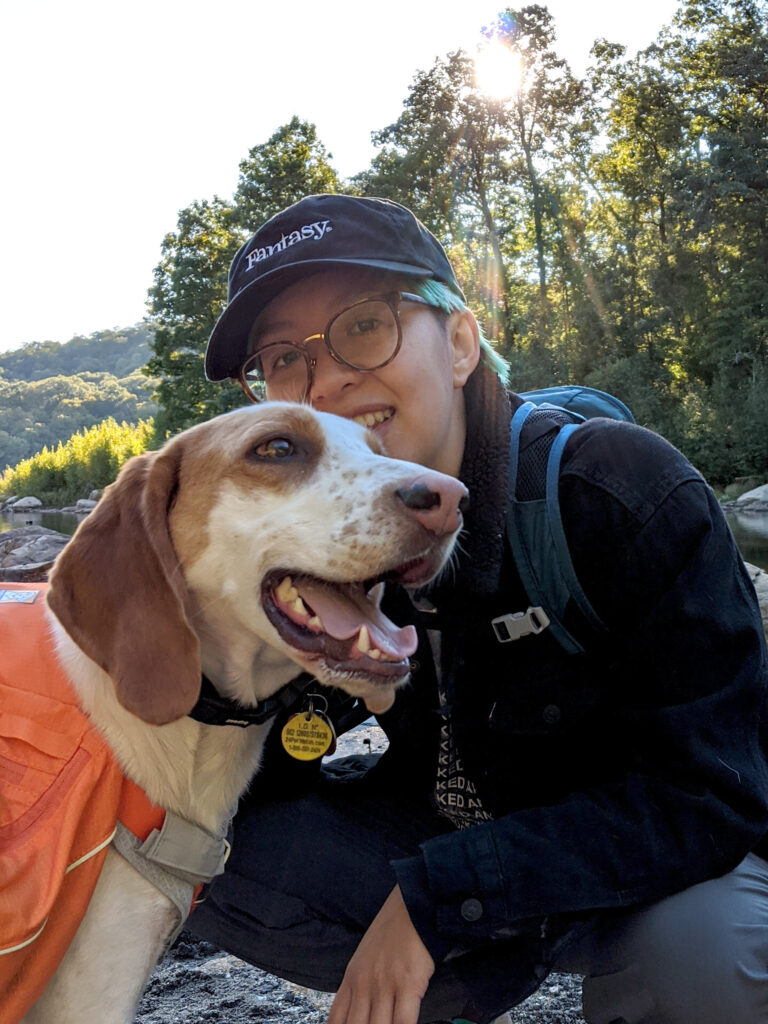
Anh Lê is a transdisciplinary researcher and artist based in Lenapehoking/NYC. Recently, they’ve built community-owned internet infrastructure with Community Tech NY/Community Technology Collective and designed advocacy campaigns to support Southeast Asian movement building in NYC. They are currently pursuing their Masters in International Affairs at The New School, where their research focuses on border technologies, migration, and digital rights.
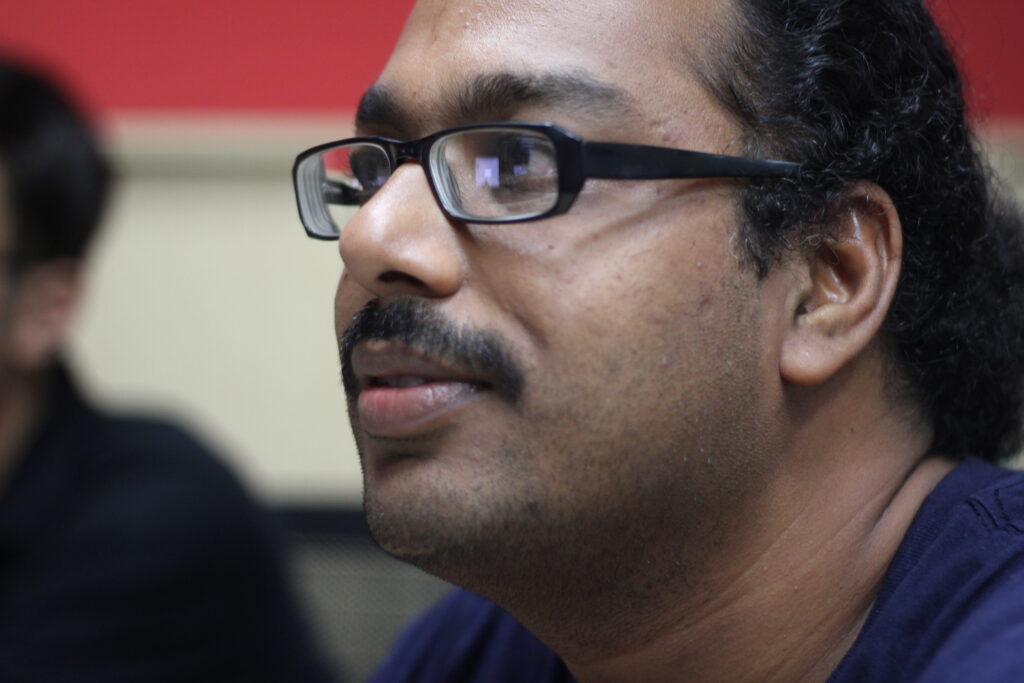
Arky is a technologist and a visual storyteller based in Southeast Asia. Arky has contributed to open source projects aimed at providing equitable access to digital tools and an open web. Over the past decade, Arky has been involved with Free/Libre and Open Source communities and has worked with organizations such as Braille Without Borders (BWB), NGO Resource Center and Mozilla in Asia and Africa.
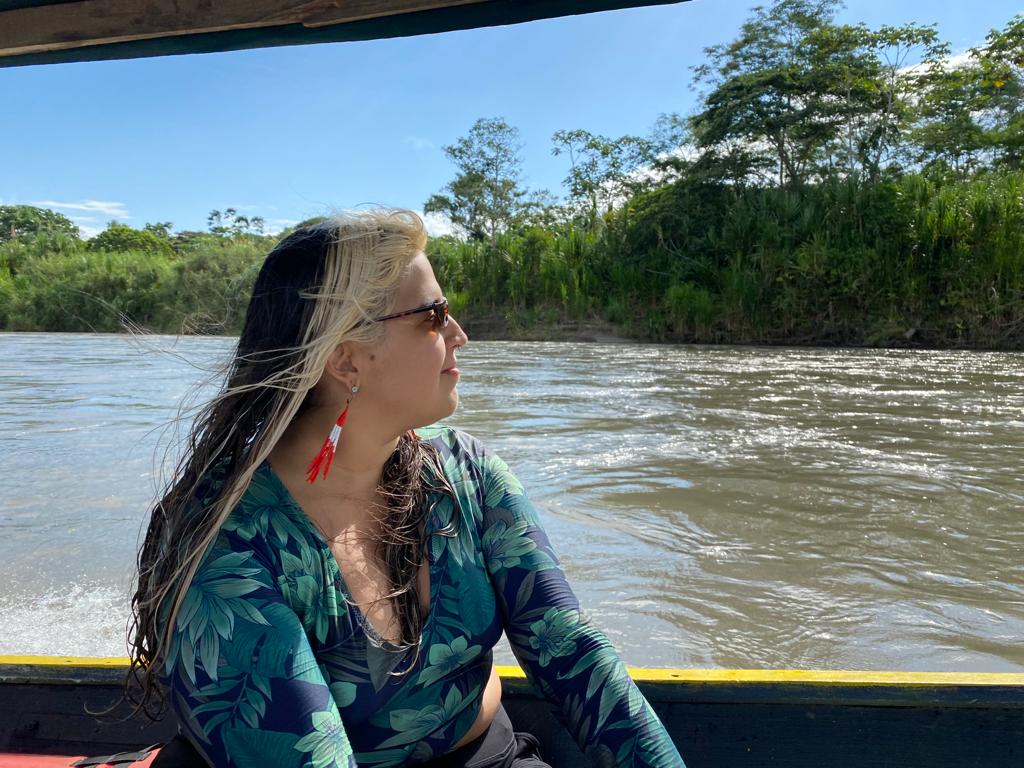
Barbara Gonzalez Segovia (she/they) is a BIPOC, queer, feminist who sees herself as a social activist. She is passionate about amplifying people’s voices from anti-racist and anti-oppressive lenses, both in her professional and personal life. She values kindness and vulnerability, and is fully committed to infuse the world with joy. These days Barbara works with Digital Democracy (https://www.digital-democracy.org/), supporting grassroot communities and earth defenders utilizing tech tools to defend their ancestral lands. She has over a decade of experience in community development, indigenous rights, and gender equality. Her work has been focusing on program planning, community outreach, and organizational development, particularly within Indigenous organizations and indigenous nations from different countries in South America.
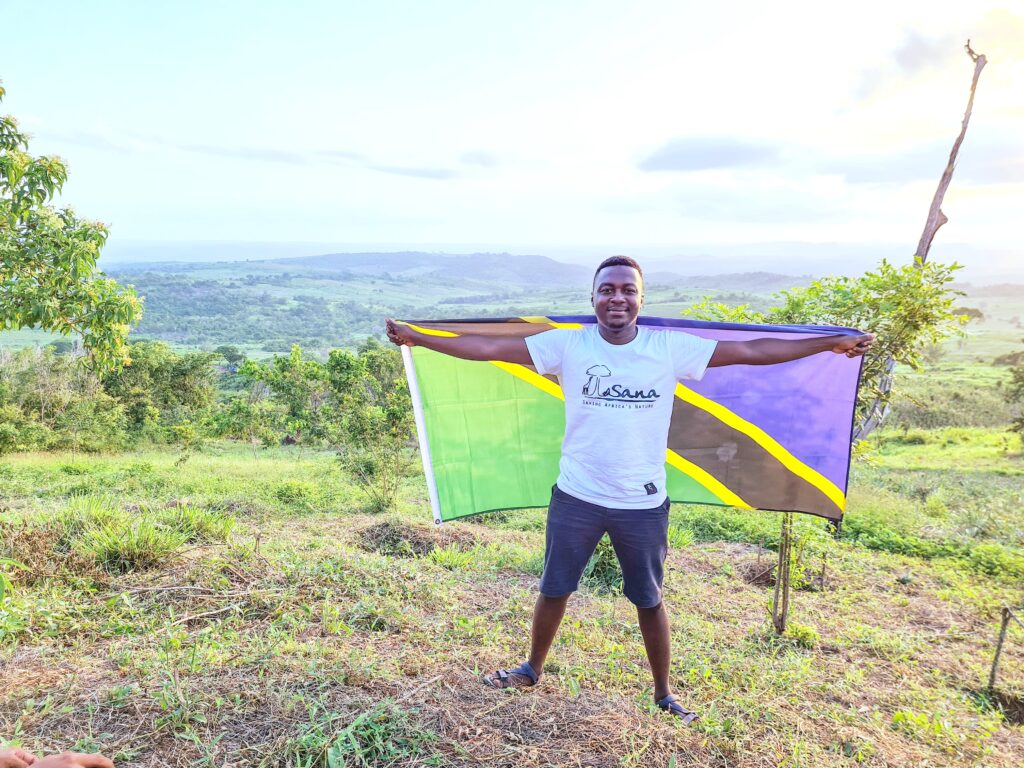
Benson Tilya is a conservation manager and seedbank analyst at Saving Africa’s Nature (http://www.karibusana.com/) in Tanzania. He has been instrumental in the encouragement, support and monitoring of SANA projects in Saadani National Park villages in Tanzania; engaged in conservation activities such as seed banking, greenhouse management and restoration of the forest corridor via tree planting projects. He stands on the thesis that technology and nature don’t have to act as antagonists; that the science behind digital technology can and should work in tandem with the respect for the natural world to subvert deforestation and promote long-term environmentally conscientious solutions.
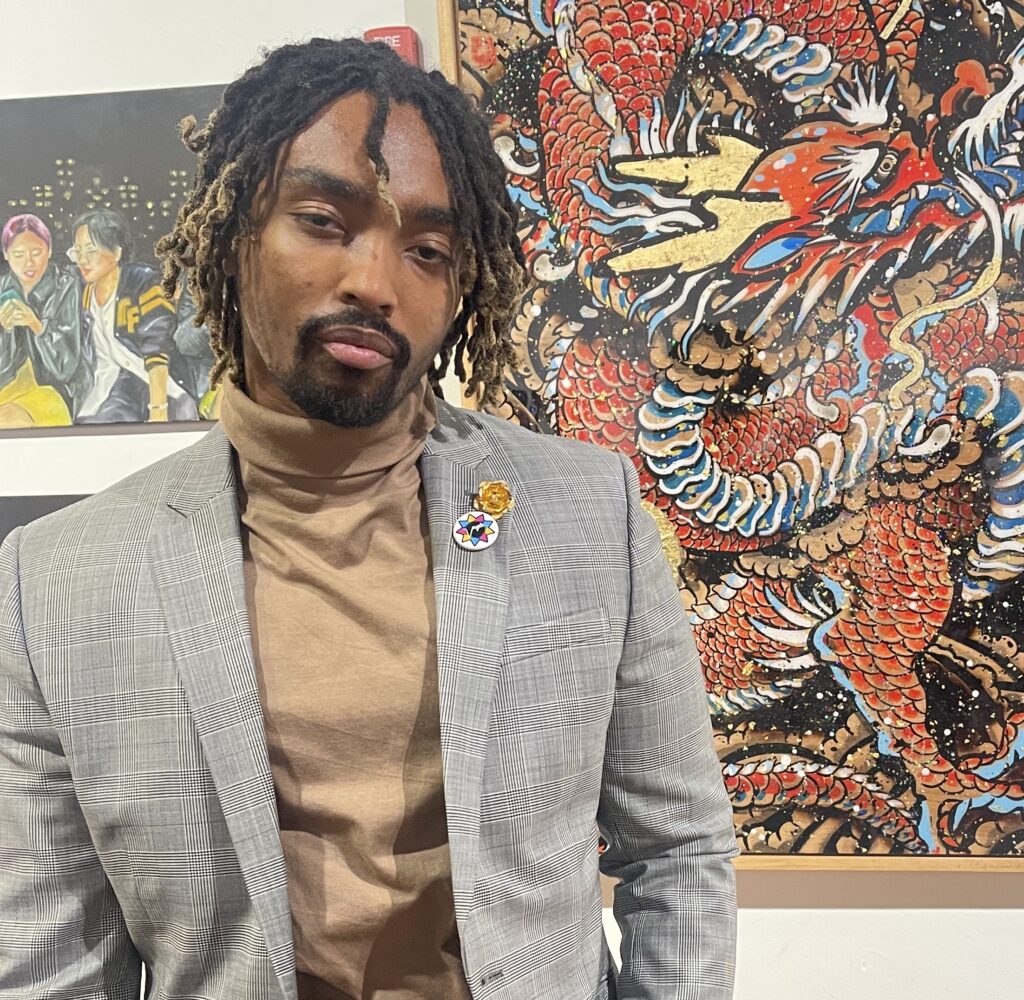
Blake Stoner is a grassroots reporter, social entrepreneur, and tech enthusiast with a history of community advocacy. After working on over 10 grassroots campaigns, he noticed many communities across the United States of America needed more representation to highlight their culture and concerns. He believes that an important challenge to address right now is the growing crisis of news deserts that disproportionately leave communities of color ill-represented and uninformed. In response, he founded Vngle, a grassroots news network which provides an equitable decentralized approach to local reporting and brings nonpartisan coverage to underreported geographic and demographic areas. Through a gig-economy model, it verifies and trains local citizens with smartphones to serve as reporters and editors. Through scaling, Vngle seeks to make verifiable news mainstream, where anyone can check the origin of where, when, & how stories are captured through a public ledger.
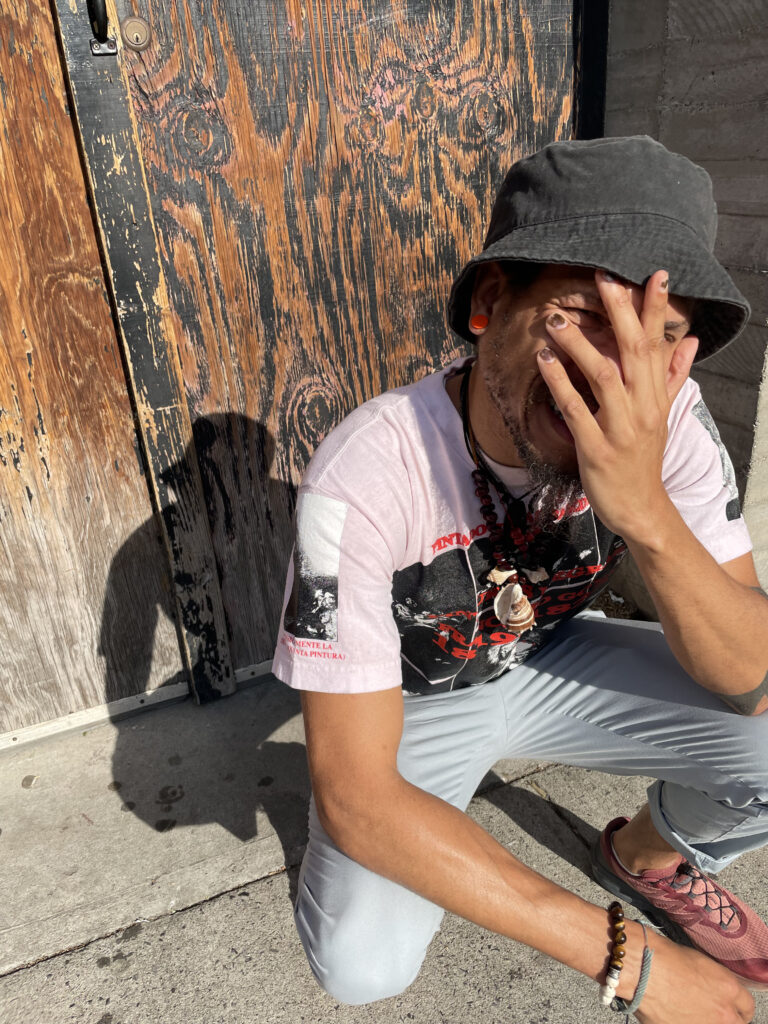
brandon king is a dj/sound-selector, multidisciplinary artist, and cultural organizer from the Atlantic Ocean by way of Hampton Roads VA, who creates installations exploring African Diasporic identities, honoring his ancestors’ stories through archival and found materials, sound collages, painting, film, and other forms. he is a founding member of Cooperation Jackson (https://cooperationjackson.org/), a cooperative network in Jackson Mississippi and currently serves as the Executive of Resonate Coop (https://resonate.coop/), an international, open source, music streaming platform cooperative. he is also a member of the NYC based artist collective PTP (Purple Tape Pedigree)(http://ptp.vision/) and is currently an MFA candidate at Queens College focusing on Social Practice and Installation.
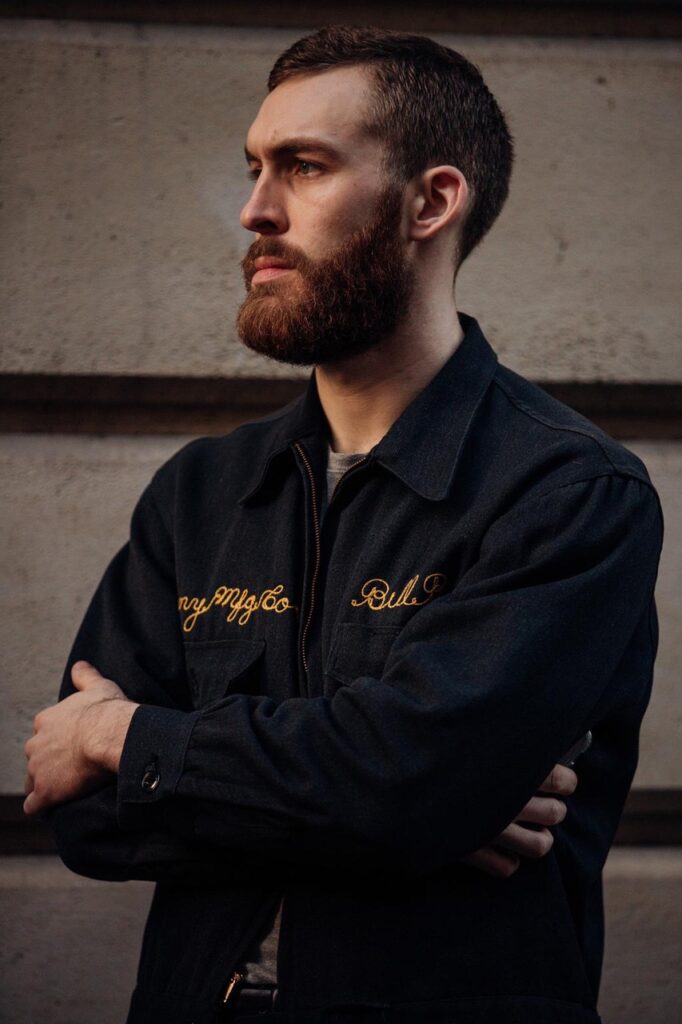
Calum Bowden is an artist working with organizations as a medium. He collaborates on stories, games, and platforms that relink the cultural with technology, economics, politics and ecology. He co-founded Trust (https://trust.support/) and Black Swan. Trust is a network of utopian conspirators, a sandbox for creative, technical, and critical projects, and site of experimentation for new ways of learning together. Trust is a hybrid online and physical space in Berlin for inquiry into emerging social and political phenomena through the lenses of aesthetic, narrative, game, technical, climate and design research. Since 2018, Trust has developed a public programme that includes lectures, installations, residency programmes, reading groups, working groups, live-streamed participatory events, and online resources. Trust incubates software projects that build a creative culture of the commons.
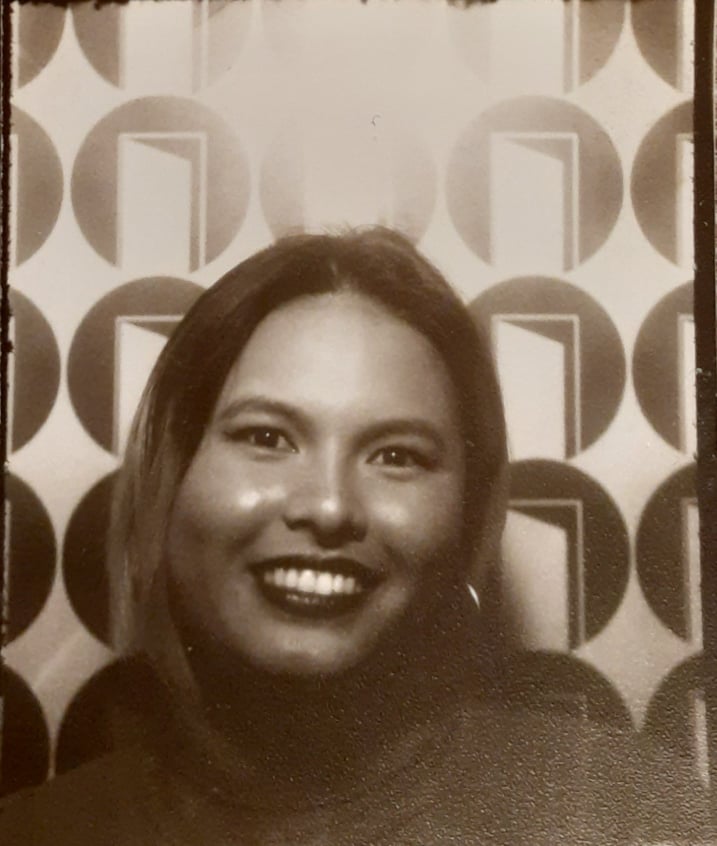
Camille Nibungco (http://camillenibung.co) is a designer currently based in Los Angeles, CA. They most recently helped build the Angelena Atlas project, an crowd-sourced intersectional community network/resource for marginalized folks in Los Angeles. They currently work in the healthcare tech space and are interested in decentralized technologies/web3 as a tool for working class sovereignty, labor, and grassroots change.
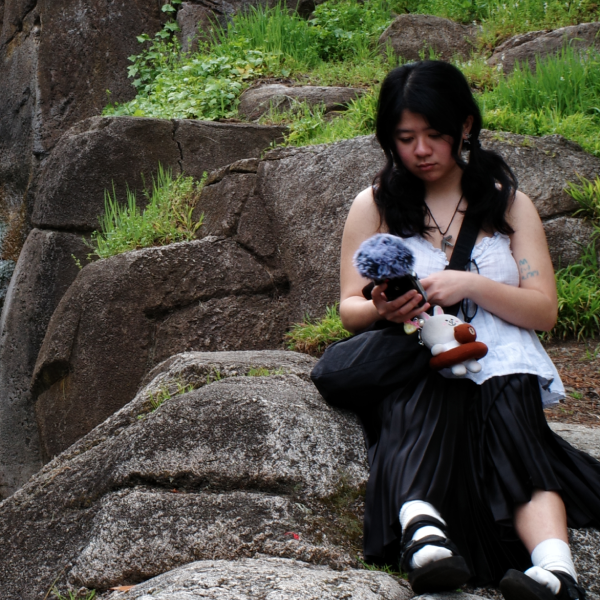
Chia Amisola (https://chia.design) is an internet + ambient artist born and raised in the Philippines, and now based in San Francisco. Their (web)site-specific art is an act of worldmaking constructing spaces, systems, and tools that posit worlds where creation is synonymous with liberation. Ambience is political: their environments tackle infrastructure, poetics, labor, and maintenance. Simply put, they wish to gather all the people they love in one place and explore how the internet might be that place. Chia is the Founder of Developh (https://developh.org) and the Philippine Internet Archive (https://philippineinternetarchive.com/). They graduated from Yale University in 2022 with a BA in Computing & the Arts, receiving the Sudler Prize.
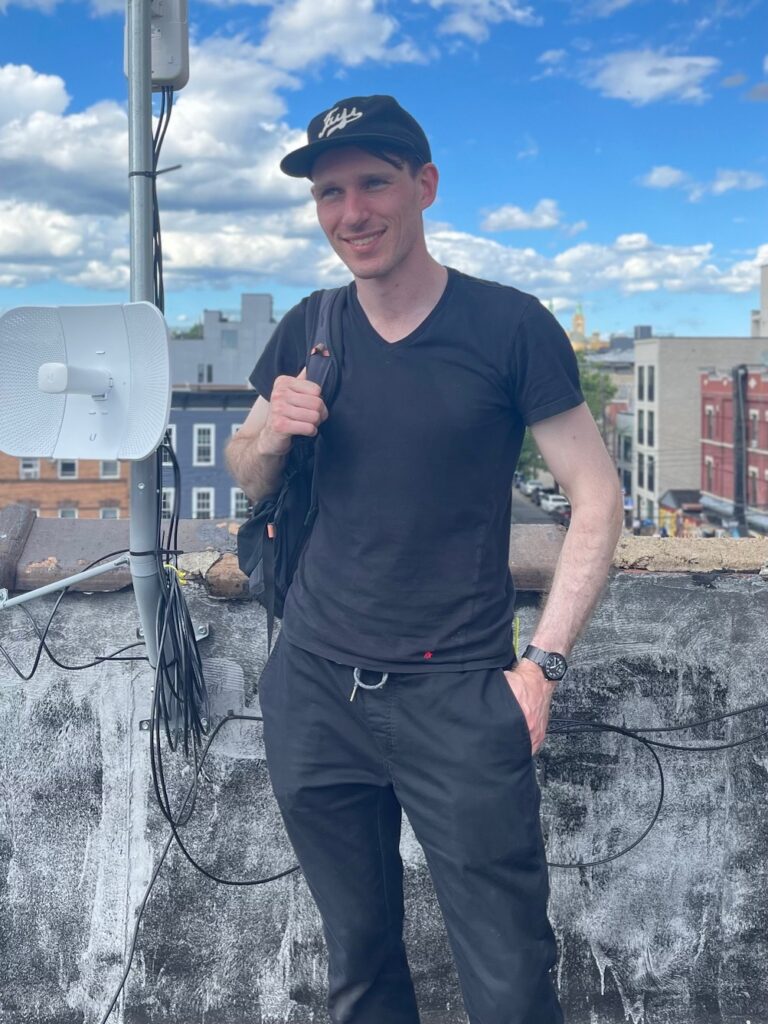
Cody Harris is a technical volunteer with Seattle Community Network (https://seattlecommunitynetwork.org/) and assisted with the deployment and operations of the DWeb network in 2022. He has volunteered at the Connections Museum in Seattle, a hands-on museum of vintage (mostly Bell System) telecom equipment, giving tours and working on the exhibits since 2019. At ToorCamp 2022, he participated in a performance art project with the ShadyTel hacker collective establishing a telecom bureaucracy and deploying an analog switched telephone network to connect campers’ landline phones, modems, and fax machines.
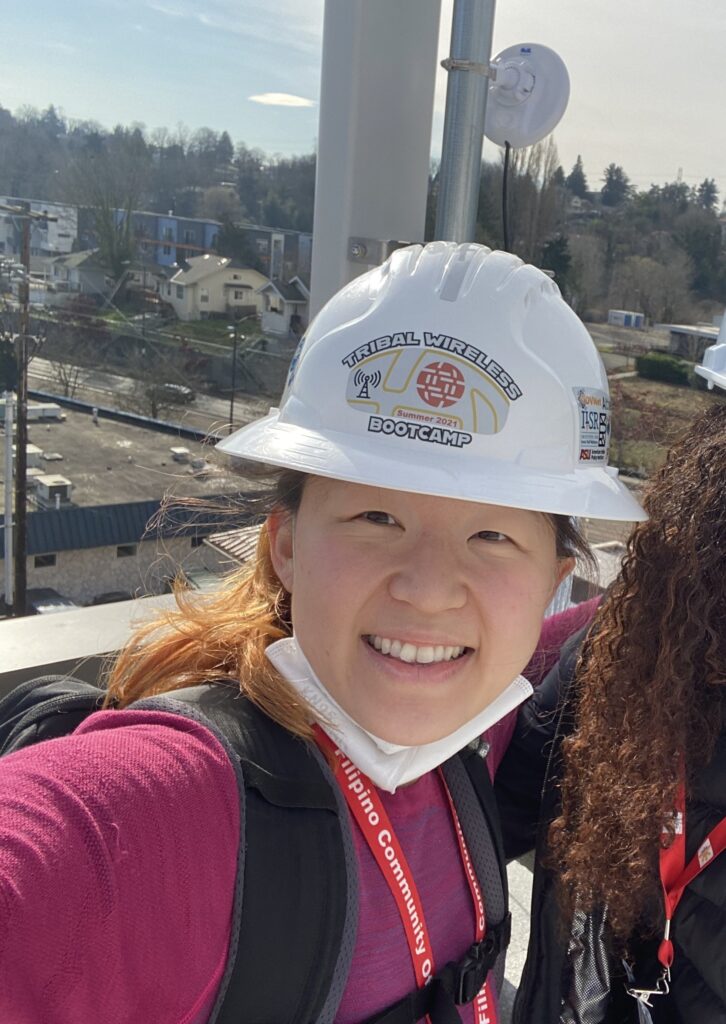
Esther Jang is a PhD student in Computer Science at the University of Washington. Her research focuses on community networks in both rural remote and urban contexts, and especially how communities of practice can build and sustain technical infrastructures. She has helped install community networks in the Philippines, Mexico, Tanzania, and various states around the US. She is currently a lead organizer and installer for the Seattle Community Network (https://seattlecommunitynetwork.org/), which seeks to build community-owned and maintained Internet access infrastructure to support digital equity in Seattle and Tacoma. She serves as a Director at the Local Connectivity Lab, a 501(c)(3) nonprofit focusing on technology research, deployment, and teaching in support of community networks around the world. In her free time, she is an avid jazz singer and plays with a band called Django Junction in Seattle.
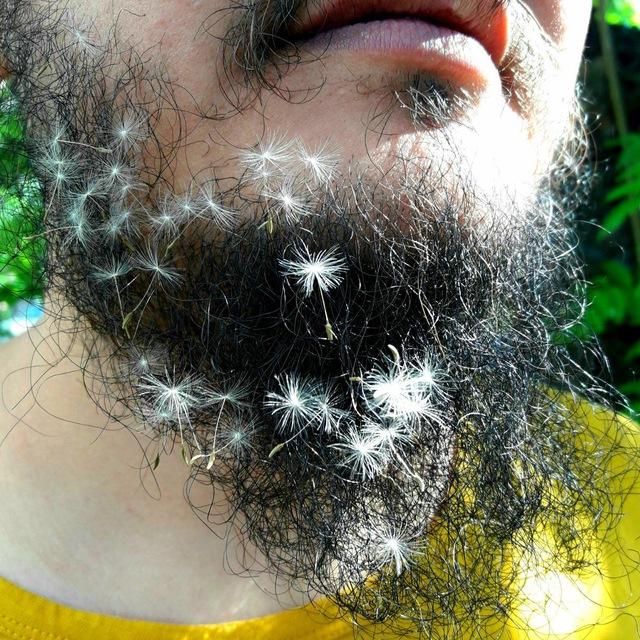
fauno’s work and activism is focused on investigating, adapting and implementing ecological and resilient technologies, specially autonomous, collectively managed infrastructure. In the last five years he has been working almost exclusively on resilient web sites using Jekyll and developing a platform for updating and hosting them called Sutty (https://sutty.nl/).
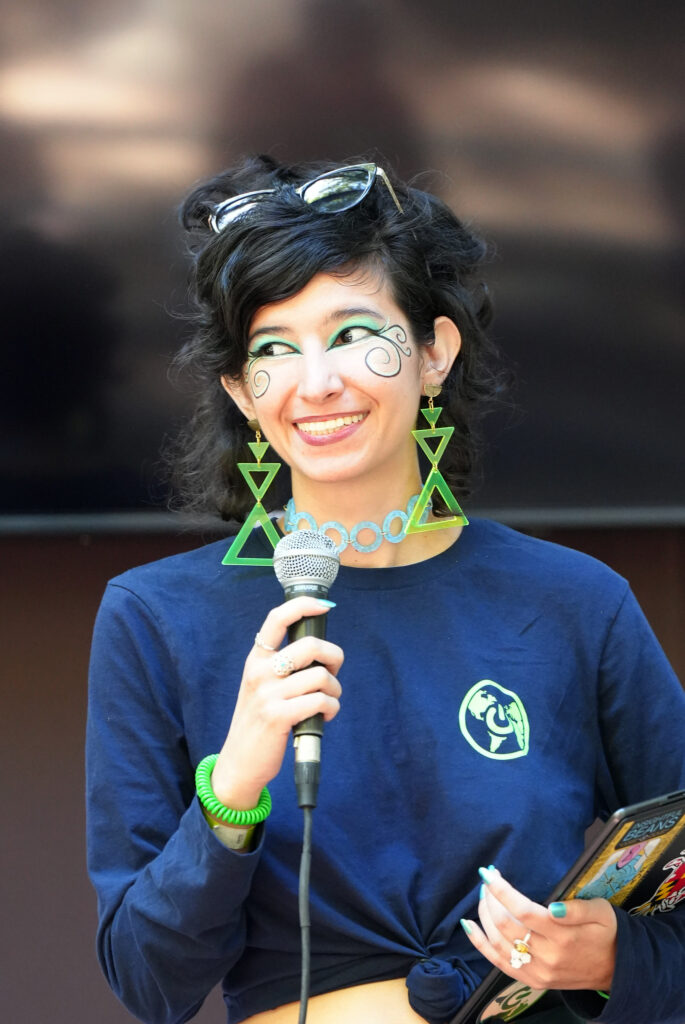
Jack Fox Keen is the Data Empowerment Lead for the Guardian Project’s ProofMode application (https://guardianproject.info/apps/org.witness.proofmode/), a cryptographically verifiable way of providing visual evidence of the world around us. Jack has been doing data analytics for non-profits for the last two years, after graduating from Florida State University with a degree in biomathematics and scientific computing. They will be starting a PhD program at UC Santa Cruz this September, where they will focus on explainable artificial intelligence. They are focused on ethical data acquisition and analysis, pulling inspiration and guidance from many realms of life, including intersectional feminism, queer theory, and decolonial studies.
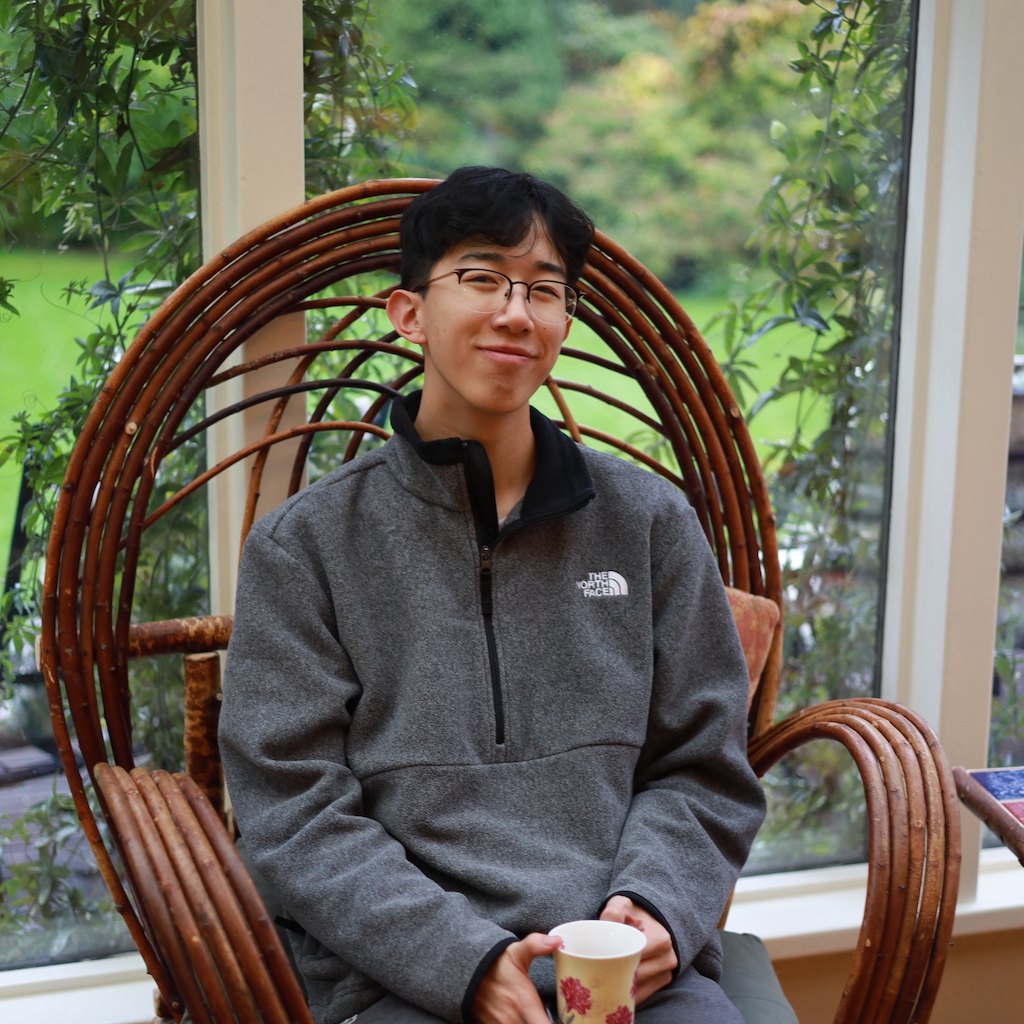
Jacky Zhao (https://jzhao.xyz/) is an independent researcher and open source maintainer. Currently, he is exploring what agentic, interoperable, and communal technology looks like in his research practice: how might we create infrastructures and technologies that empower the residents of the web to have access to the same tools as the architect? On a broader level, he cares deeply about creating spaces that enable others to have more agency: agency to ask questions without judgement; agency to do what they are intrinsically drawn toward; agency to play (because what’s the point if we can’t have a bit of fun?). In his spare time, he works with Hypha Worker Co-op on Distributed Press (https://distributed.press/) and is a core contributor at verses (https://verses.xyz/).
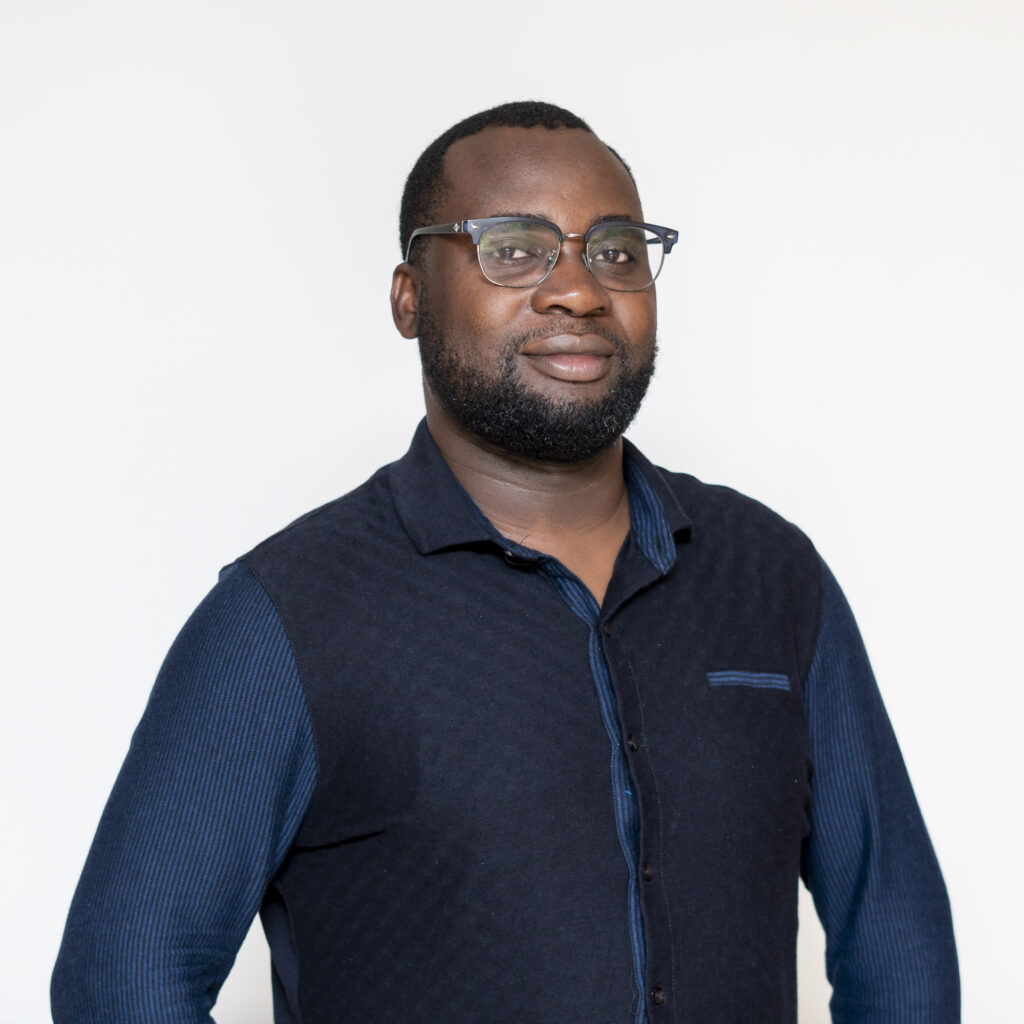
James Gondwe is the founder and Director of Centre for Youth and Development. His passion for decentralized approaches to digital literacy and connectivity has positioned him at the forefront of exploring the transformative role of ICT, including the internet, in enabling opportunities for marginalized communities. James is a recipient of the Royal Commonwealth Queens Young Leaders Associate Fellowship, 2016 One Young World Ambassador, honored with the Trust Conference Changemakers Award, and is a recipient of the African Community Networks Summit Fellowship. Through his unwavering dedication to community empowerment, he drives change by bridging the digital divide and creating opportunities for marginalized individuals and communities.
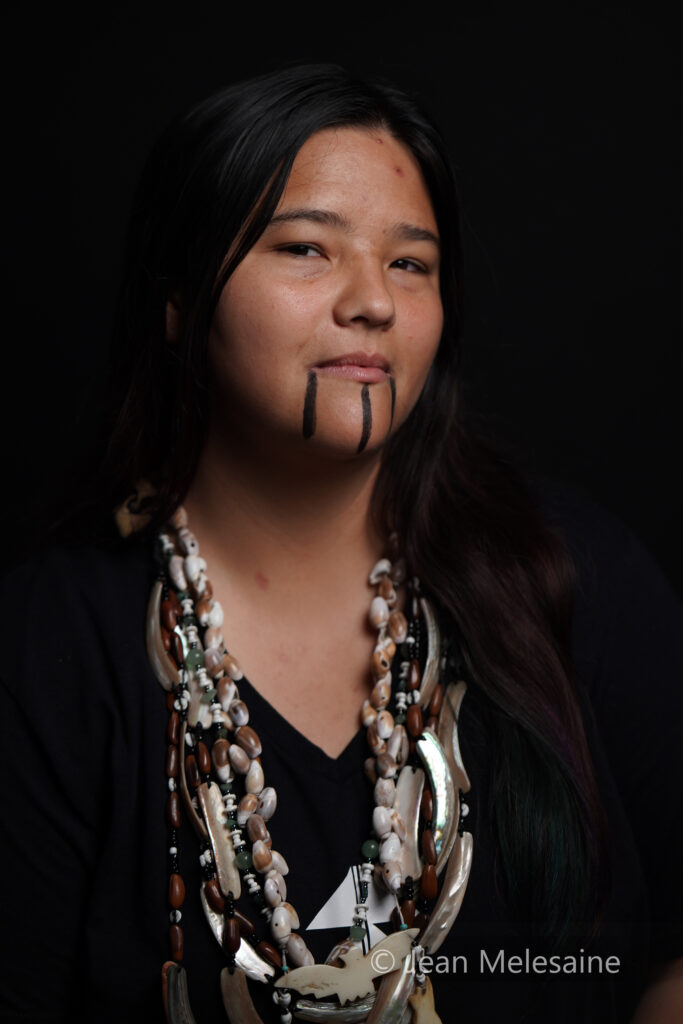
Kanyon Coyote Woman Sayers-Roods (https://about.me/kanyon.coyotewoman) is an Ohlone Mutsun and Chumash Native American whose art serves as a heartfelt expression of her Native heritage. Kanyon is a dedicated and active member of the Native Community, assuming various roles as an artist, poet, activist, student, and teacher, inspiring emerging scholars to explore their creative paths and embrace decolonization. Graduated with an A.S+B.S with honors from the Art Institute of CA majoring in Web Design and Interactive Media, Kanyon weaves her knowledge of the digital world and her ancestral knowledge of the land. In addition to her artistic pursuits, Kanyon also serves as the CEO of Kanyon Konsulting (https://kanyonkonsulting.com) and acts as a caretaker for Indian Canyon, a “Federally recognized Indian Country” (https://patreon.com/IndianCanyon) situated between San Francisco and Monterey (https://costanoan.org).
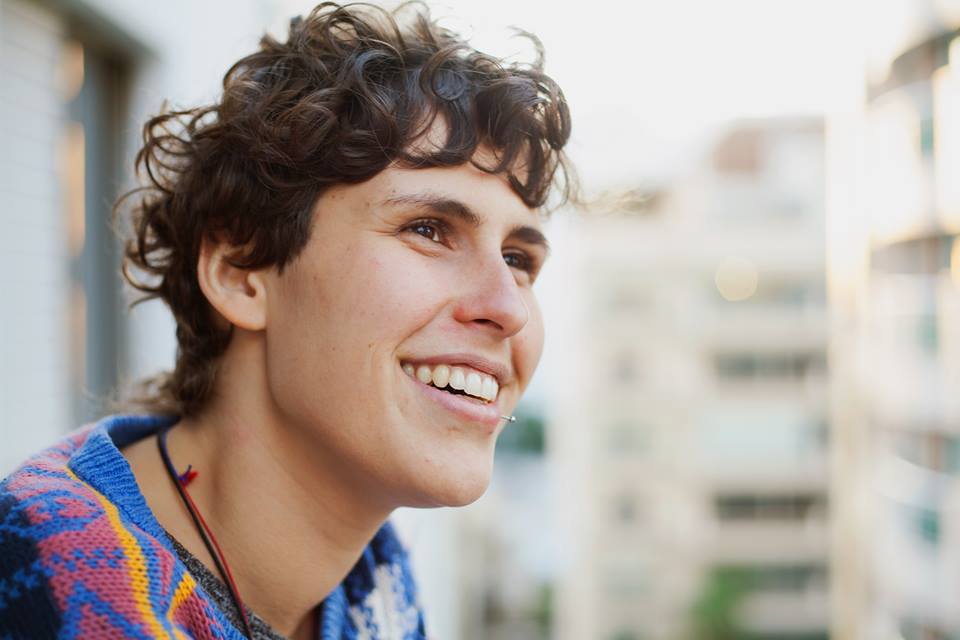
Luisa Bagope is a documentary director interested in cyber as well as natural and human technology. With support from APC she has been documenting community network activities in the global south and was an active participant of PSP Community Network (Portal sem Porteiras – https://portalsemporteiras.github.io/) for 3 years. Luisa coordinated the Nodes That Bond project: a collective learning process centered around technology that happened through circular encounters amongst women. Focusing on feminist methods of community-based organization, she now continues to work with communication as a potency for social transformation in the Afluentes Association, in Monteiro Lobato, Brasil.
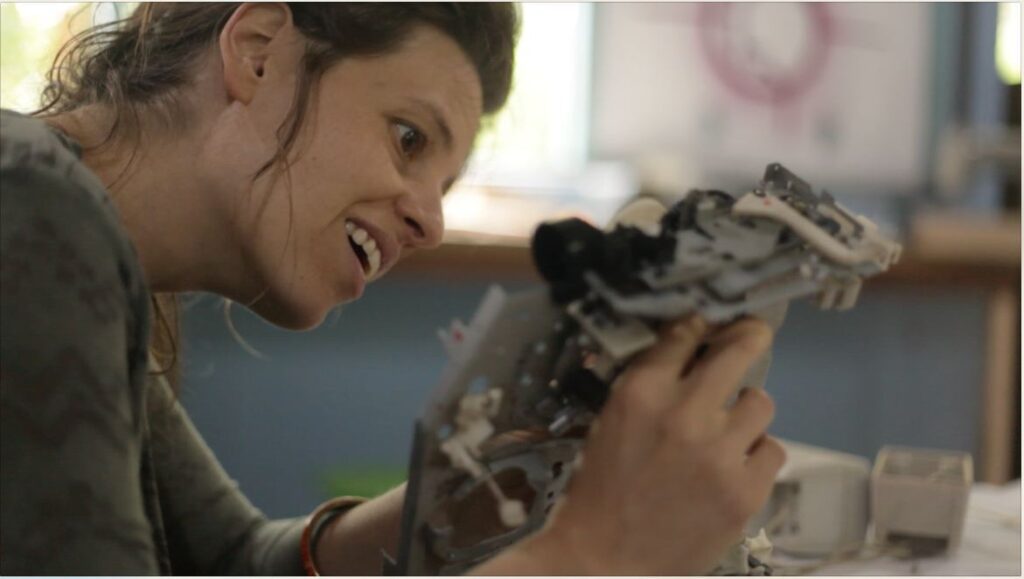
Marcela Guerra is a writer, artisan, and mother. She learned with Oankali that humans have an inevitable tendency to hierarchy. Even though she recognizes this tendency in all the relationships she can witness, she challenges herself to imagine non-hierarchical technologies, especially the communication ones. Marcela is part of the Portal sem Porteiras association (PSP – https://portalsemporteiras.github.io/) that runs a community internet network. She is a co-creator of the project Nodes that Bonds (https://portalsemporteiras.github.io/en/nos-por-nos/2019/) which takes place in the PSP network and member of the collective Sítio do Astronauta (https://sitiodoastronauta.com.br/) that teaches electronic handicraft. She is also part of Marlu Studio, which develops methodologies for the creation of community fictions.
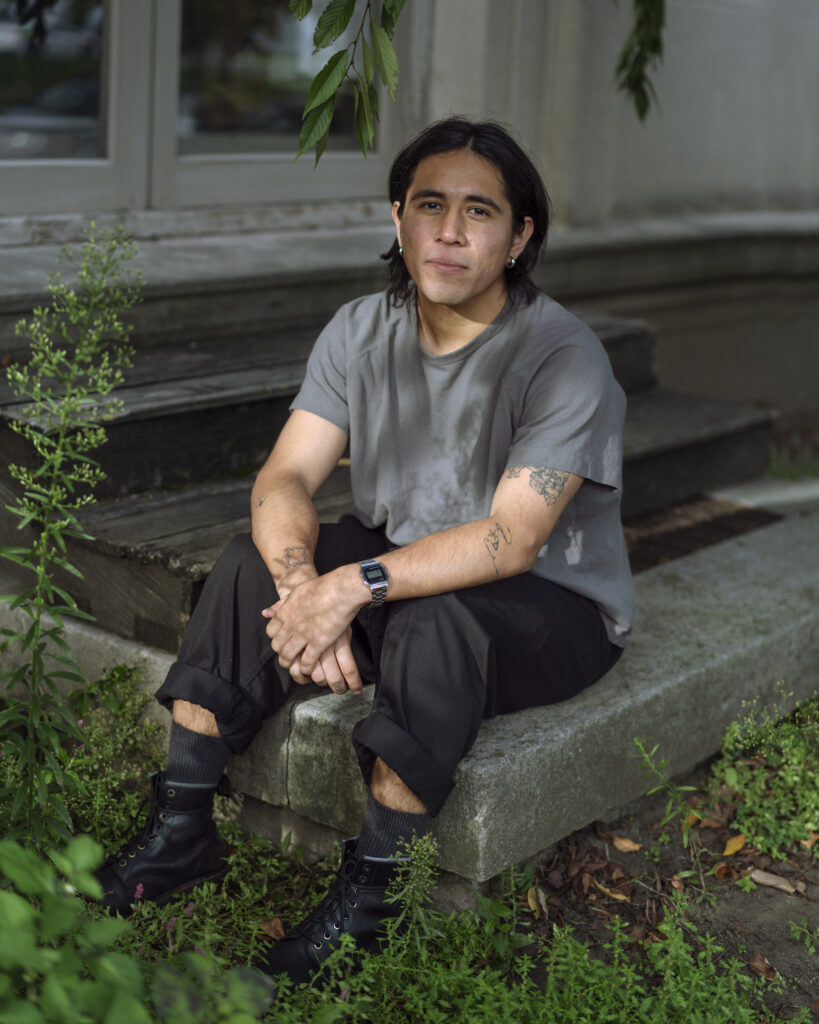
Mark Anthony Hernandez Motaghy is an artist and cultural worker of Mexican and Iranian descent. Operating with mediums such as experimental video, as well as installation, books, and oral histories, Mark’s practice explores the digital commons, care-based economies, and sociotechnical imaginaries. They recently published the zine-book Rehearsing Solidarity: Learning from Mutual Aid with Thick Press. The book archives how mutual aid groups assembled solidarity digital infrastructures for the COVID-19 crisis and how they sustainably reassembled for sustaining communal care. Currently, they are a fellow at Ujima Boston Project, providing artistic and editorial direction for a new magazine on art, culture, and the solidarity economy.
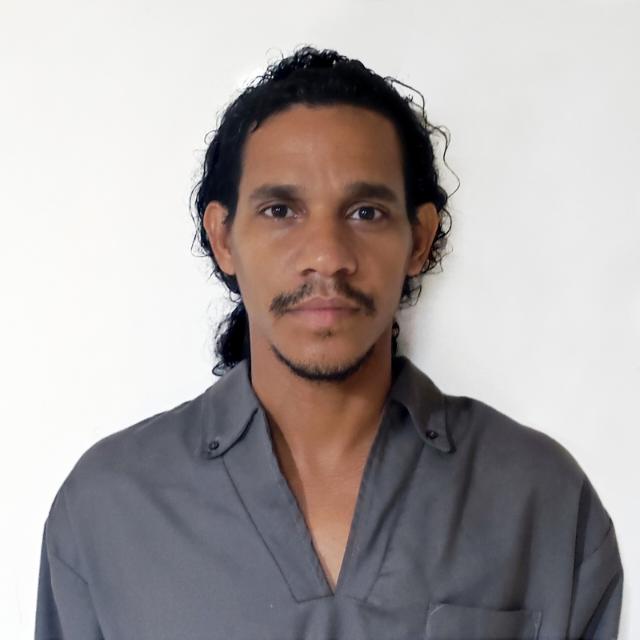
Maurice Haedo Sanabria (m00.copincha.org) is an industrial designer passionate about technology and its impact on society. His work focuses on the circulation of information and the creation of goods through open collaboration, especially in Cuba, where material scarcity and limited Internet connectivity have forced society to seek creative alternatives. Five years ago, he transformed his own home in Downtown Havana into a hackerspace/laboratory called Copincha. (In Cuban slang, “pincha” means work, so “Copincha” can be understood as “collective work”.) Inspired by “DIY” and “do it together” philosophies, Copincha’s members use collaborative, open-source methods to share knowledge and develop solutions to local challenges through transdisciplinary, resilient and ecological practices.
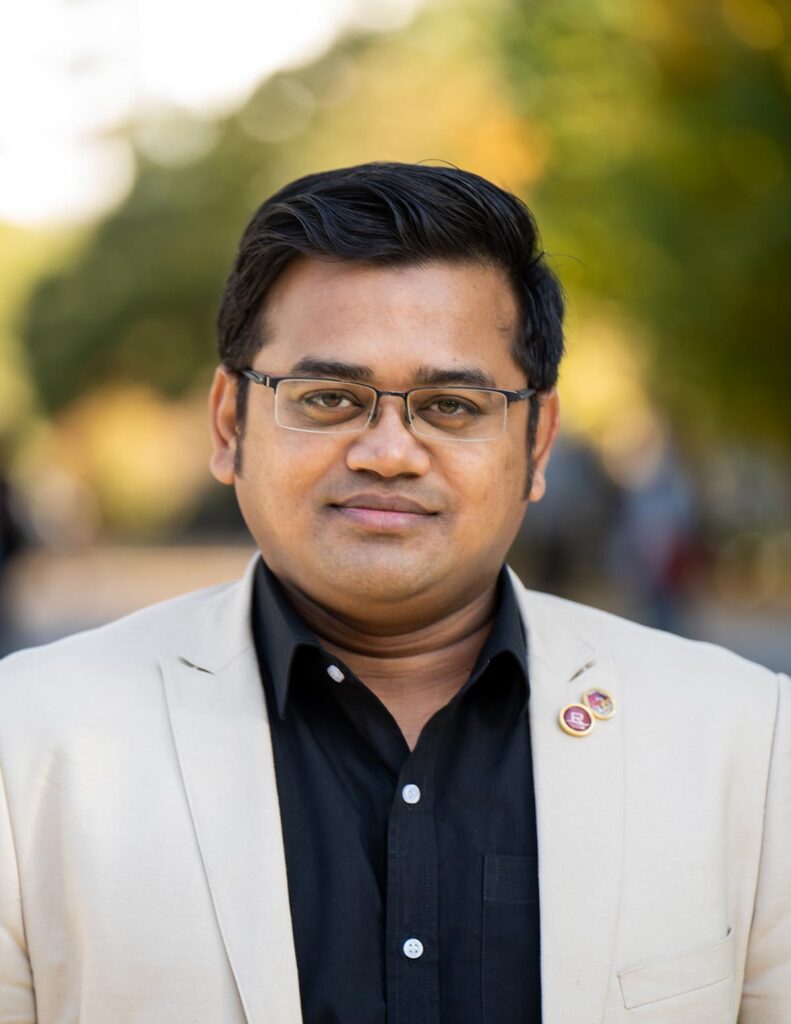
A Rohingya himself, Muhammad Noor has established several Rohingya institutions and trained several highly-regarded members of the Rohingya community worldwide. His most notable contributions include the digitization and Unicode of First Rohingya Alphabet, serving as the chairman of Rohingya Football Club, authoring “ Born to Struggle: The Child of Rohingya Refugees and His Inspiring Journey” and working on several assignments with the UN High Commission for Refugees, the Red Cross, International Organization for Migration, International Network of Human Rights. Noor is the Co-Founder of Rohingya Vision (RVISION), the world’s first Rohingya Satellite television channel.
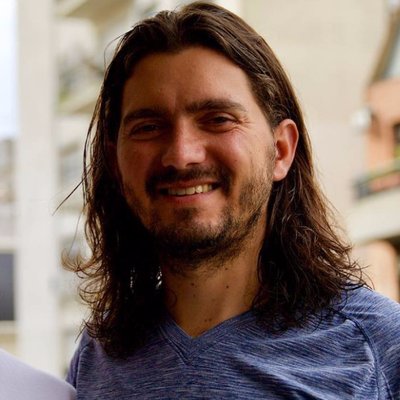
Nicolás Pace (https://www.apc.org/en/users/nicopace) is the technology and innovation co-coordinator within the LOCNET initiative, which supports organizations and communities in exploring the innovative approaches to the use of technology in the context of community networks in the global south. Nicolás has traveled to more than 15 countries to build bridges between community networks and to understand the diversity and complexity of the field.
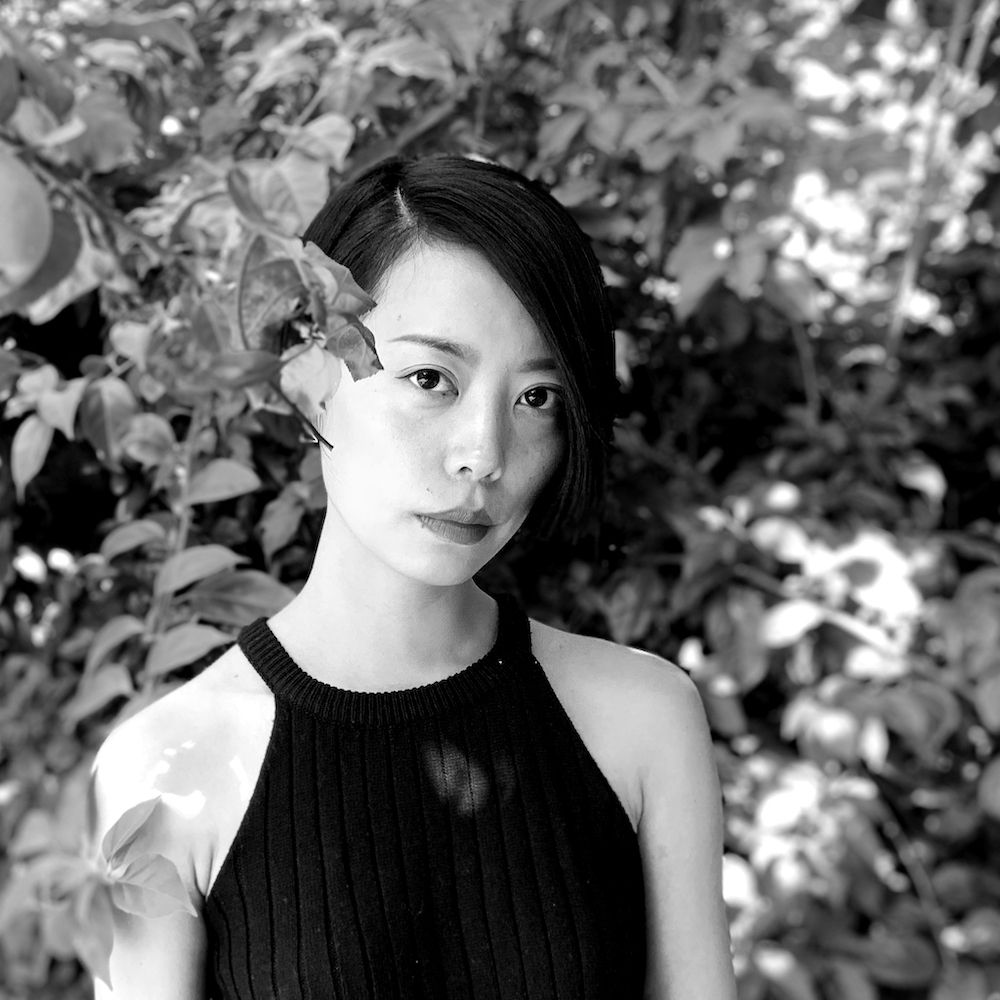
Qianqian (Q) Ye is a Chinese artist, creative technologist, and educator based in Los Angeles. Trained as an architect, she creates digital, physical, and social spaces exploring issues around gender, immigration, power, and technology. Her most recent collaborative project, The Future of Memory, was a recipient of the Mozilla Creative Media Award. At the Processing Foundation, Qianqian is the Lead of p5.js, an open-source art and education platform that prioritizes access and diversity in learning to code, with over 1.5 million users. She currently teaches creative coding as an Adjunct Assistant Professor at USC Media Arts + Practice and 3D Arts at Parsons School of Design. For 2022-2023, Qianqian is a NYU ITP/IMA Project fellow and Civic Media Fellow at USC Annenberg Innovation Lab.
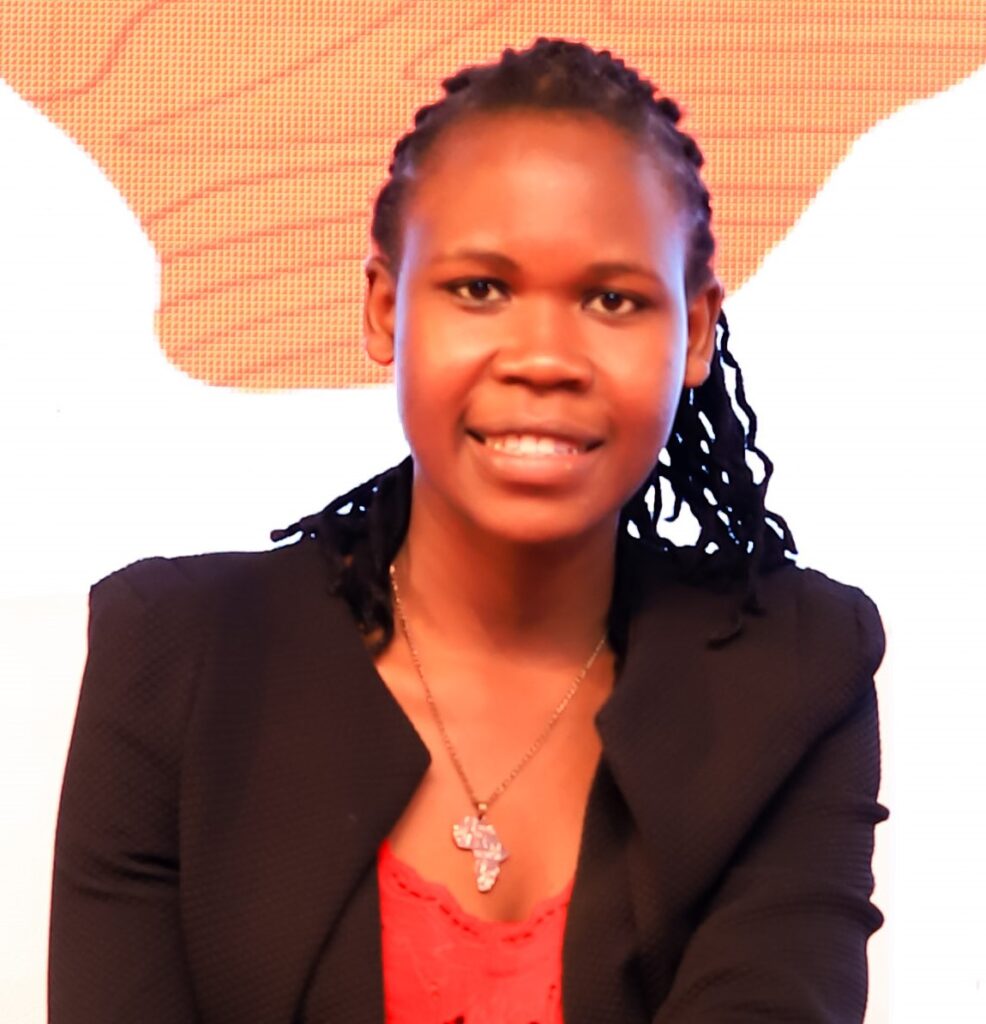
Risper A Rose works with the low cost community wireless network, TunapandaNET (https://tunapanda.org/) in Nairobi, Kenya, as a gender and community engagement expert. She is involved in digital outreach, understanding women and their usage of connectivity, amplifying meaningful usage and utilization of connectivity, and conducting impact assessment studies of connectivity in the community. She has handled tech-centered advisories and training on digital rights, digital inclusion, digital advocacy, and digital protection and privacy. Her main focus is on gender justice, community capacity development, community research using human-centered design, stakeholder engagement, and public participation in policymaking. She holds a Bachelor of Arts in Gender and Development (with Honors) Degree from Kenyatta University.
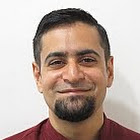
Saqib Sheikh‘s work centers on advocacy, social inclusion, and educational access for refugees and stateless people. He serves as Project Director for the Rohingya Project, a grassroots initiative for the empowerment of the Rohingya diaspora using blockchain technology. He is also a co-founder and advisor for the Refugee Coalition of Malaysia (RCOM) where he focuses on creating formal pathways for refugee placement in higher education institutes in Malaysia. A journalist by training, Saqib received his Masters in Communication from Purdue University, and is currently a PhD researcher at the S. Rajaratnam School of International Studies (RSIS), Singapore, researching the use of technology for legitimization of stateless communities.
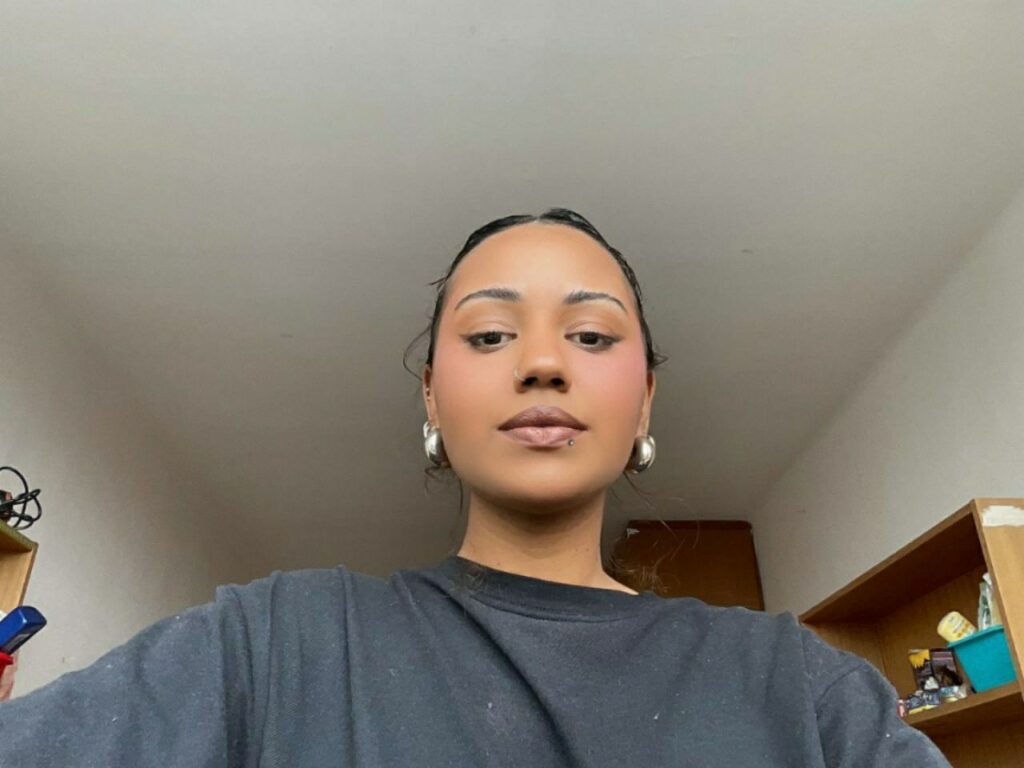
Sheley Gomes is a POC, queer feminist, researcher and activist for digital and human rights, as well as the right to communication, being part of non-profit organisations both in Brazil and Europe. Her research goes from contexts such as Latin America, western-European, and Sub-saharan African countries, investigating the role of media, the ownership, and freedom of expression in those different scenarios. Her focus goes especially to new media technologies and its impacts for marginalised communities.
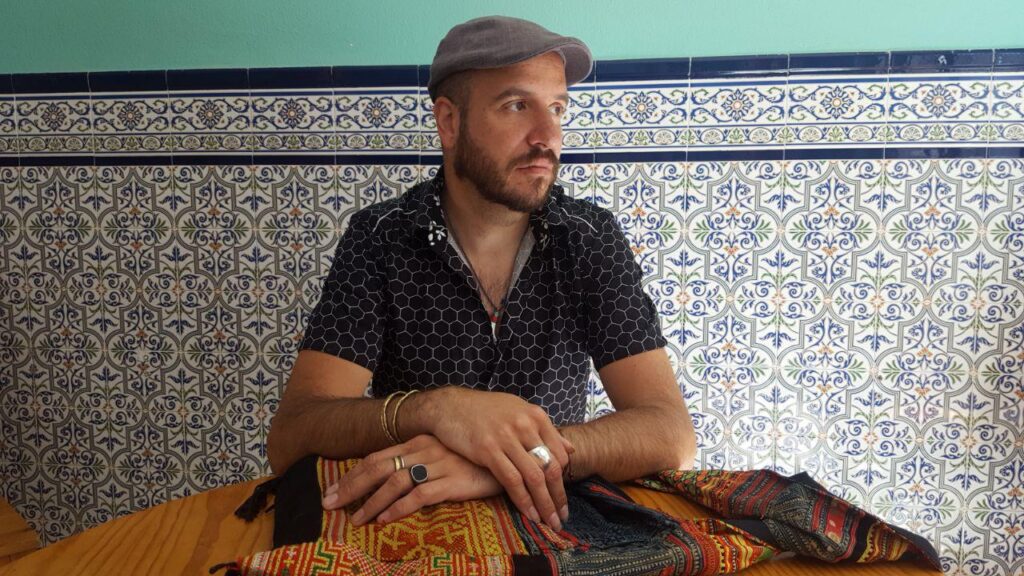
Stacco Troncoso (https://stacco.works/) teaches and writes on the Commons, P2P politics and economics, open culture, post-growth futures, Platform and Open Cooperativism, decentralised governance, blockchain, and more. He is the co-founder of DisCO.coop (https://disco.coop/), project lead for Commons Transition, and co-founder of the P2P translation collective Guerrilla Translation. His work in communicating commons culture extends to public speaking and relationship-building with prefigurative communities, policymakers, and potential commoners.
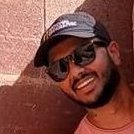
Subhashish Panigrahi (https://psubhashish.com) is interested in research and building resources in the intersection of community, tech, and media. A public interest archivist, non-fiction filmmaker, and civil society leader, he has served and catalyzed many open knowledge/internet communities through his work at Wikimedia, Mozilla, Internet Society and the Internet Society. He currently serves as the director of the Law for All Initiative at Ashoka. A National Geographic Explorer, he has made ten critically acclaimed documentaries, focusing on endangered languages, digital rights, and the open internet movement in South Asia. He founded OpenSpeaks and co-founded O Foundation in 2017, both building openly-licensed media and resources for low- and medium-resourced languages through participatory means.
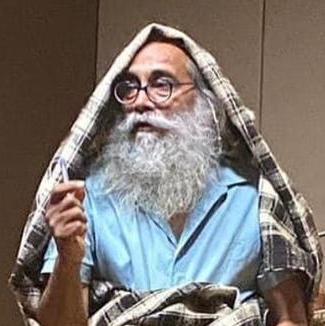
TB Dinesh is a community media activist with a background in Computer Science. The recent focus of their work is on infrastructure for encouraging people from marginalised communities to document their ways of life to help tell their stories. This involves helping create a Community Owned Wifimesh (COWMesh) with Libre Routers, Bamboo towers, ASPi client kiosks and Internet independent services with Janastu (janastu.org). Services include audio-video fragment-annotating tools, voice communication and negotiation of traffic vouchers. Set in a remote rural hilly forest region, near Bangalore, India, their Lab is open for visitors and residents who wish to creatively engage in creating a replicable model of self-determined future Community Networks. Anthillhacks (anthillhacks.in) is their end of year annual event where everyone is invited to live with their community.
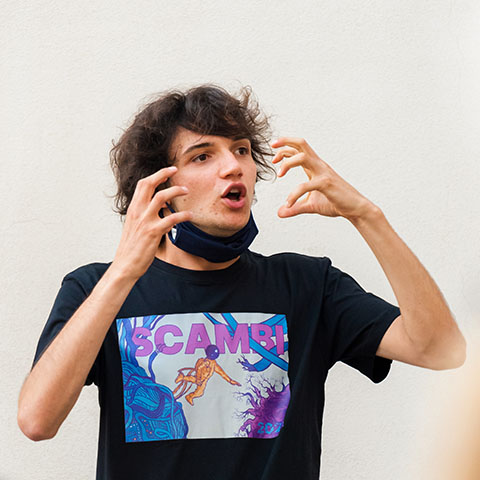
Tommi Marmo is self-described “enthusiastic and curious 22 years old weirdo from Italy.” He is the co-founder of Scambi Festival (https://scambi.org), a cultural event focused on interactive workshops which is organized exclusively by a staff of volunteers under 25 years old coming from all over Europe. He just graduated in Philosophy, International Studies, and Economics at Ca’ Foscari University of Venice. Tommi is a dreamer and an activist concerning the need of a deeper sociological and philosophical analysis of the Internet, at its essential core. In 2020, he deleted all of his mainstream social media accounts and created https://tommi.space, which he considers the virtual representation of his mind. He is the admin of Pan (https://pan.rent), a Fediverse node.
Victor von Sydow is a member of Coolab (https://www.coolab.org), a co-operative lab that builds community telecommunication projects promoting autonomous infrastructures through technical training and community activation. He is interested in research and strategy development focused on systemic and infrastructural conditions that shape socio-economic, political, and institutional realities. To this extent, he develops and operationalises experimental approaches to organisational design, policy, finance and rights.

Xin Xin is an artist currently making socially-engaged software that explores the possibilities of reshaping language and power relations. Through mediating, subverting, and innovating modes of social interaction in the digital space, Xin invites participants to relate to one another and experience togetherness in new and unfamiliar ways. As an artist, their work has been exhibited internationally at Ars Electronica, Eyebeam, DIS, Kunstverein Wolfsburg, and the Gene Siskel Film Center. They were an Eyebeam Rapid Response for a Better Digital Future Fellow and a Sundance Art of Practice Fellow. As an organizer, Xin co-founded voidLab, a LA-based intersectional feminist collective dedicated to women, trans, and queer folks. They were the Director for Processing Community Day 2019 and they serve on the Processing Foundation Board.
*~*~*~*~*
We want to extend our deep gratitude to the sponsors who made this Fellowship program possible: Filecoin Foundation for the Decentralized Web, Ford Foundation, Ethereum Foundation, Storj, RSS3, Planet, Gitcoin, NextID, and Paul Lindner.